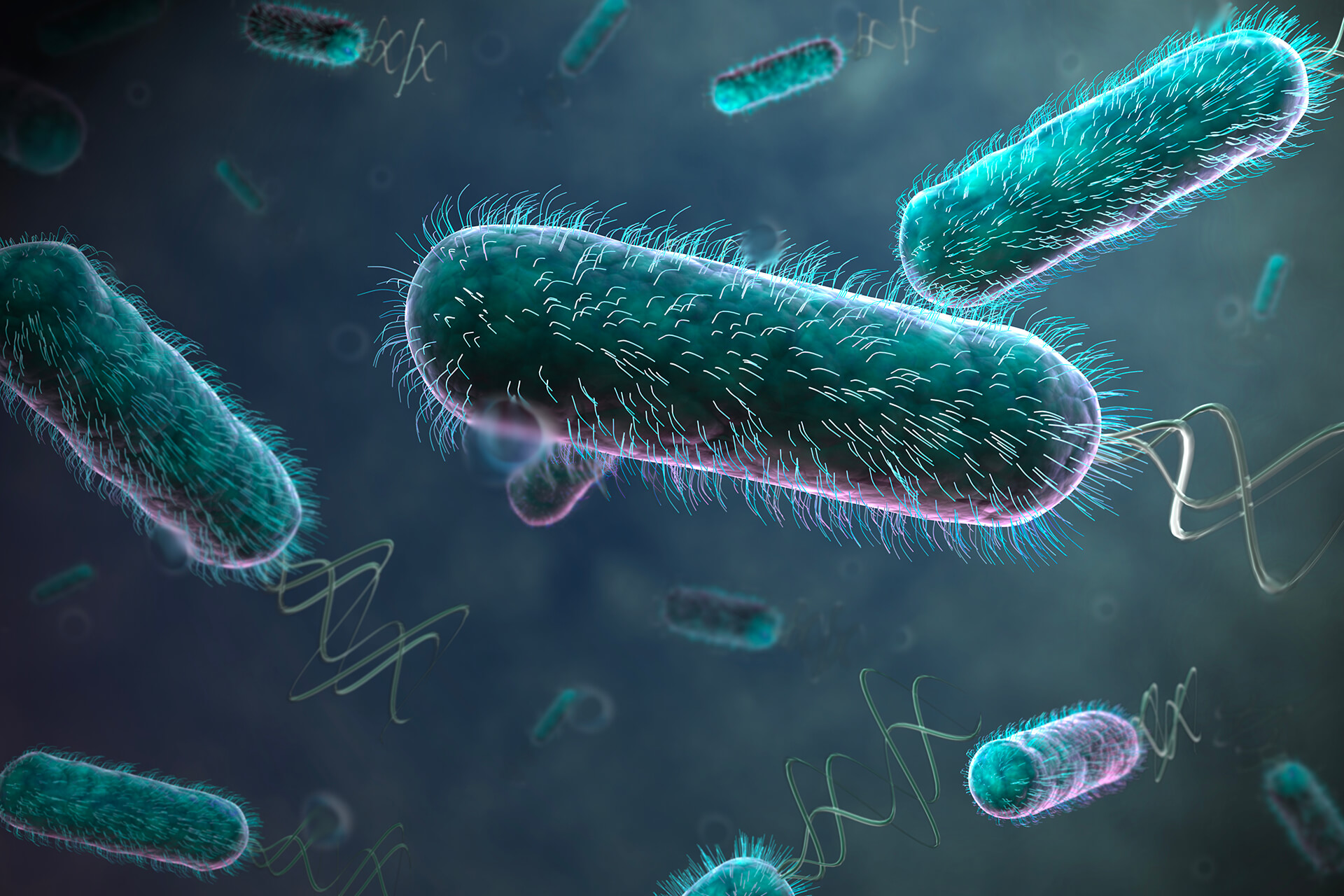E. coli strain engineering (pathway engineering)
Escherichia coli is an important producer organism in industrial biotechnology and represents the best studied prokaryotic model organism. Genetic modified strains are used to express industrially important proteins and enzymes, as well as to enzymatically produce fine chemicals. Metabolic engineering is becoming increasingly important to optimize strains to meet commercial objectives.
Recombineering (Red/ET recombination) permits defined, scarless modification of the E. coli chromosome. Gen-H’s scientists have performed hundreds of E. coli modifications for academic and industrial clients, modifying metabolic pathways and even introducing entirely new ones. Recombineering allows promoter fine tuning to optimize gene expression in order to remove bottlenecks or to reduce accumulation of unwanted by-products. Gen-H has experience with highly challenging modifications, such as genomic insertion of multiple expression cassettes and large operons, and the insertion of point mutations in essential genes.
The scientists at Gen-H offer their know-how in microbiology and molecular biology plus experience in White Biotechnology for the creation of any modified E. coli strain.
Our services include:
Provided services
- Customized design
- Decent timelines and regular progress updates
- Final strain confirmation by PCR and sequencing of modified regions
- If desired: documentation in GMP-like manner
What we offer:
Offers
- Modification of K12 strains (e.g. W3110), B-strains (e.g. BL21(DE3)), E. coli W and Nissle1917.
- Single or multiple gene knock-outs
- Single or multiple insertions
- Seamless gene modifications
- Insertion of point mutations in essential genes
- Promoter modulations
Examples
- Method for plasmid-based antibiotic-free fermentation; Katherine E. Brechun, Marion Förschle, Marlen Schmidt and Harald Kranz; Microbial Cell Factories 2024; 23:18
- Application of an Escherichia coli triple reporter strain for at-line monitoring of single-cell physiology during L-phenylalanine production; Mahn Dat Hoang, Dieu Thi Doan, Marlen Schmidt, Harald Kranz, Andreas Kremling and Anna-Lena Heins; Eng Life Sci 2022, 1
- Novel Escherichia coli active site dnaE alleles with altered base and sugar selectivity; Alexandra Vaisman, Krystian Łazowski, Martin A. M. Reijns, Erin Walsh, John P. McDonald, Kristiniana C. Moreno, Dominic R. Quiros, Marlen Schmidt, Harald Kranz,Wei Yang, Karolina Makiela-Dzbenska and Roger Woodgate; Molecular Microbiology 2021; 116: 909
- CroSR391, an ortholog of the λ Cro repressor, plays a major role in suppressing polVR391-dependent mutagenesis; John P. McDonald, Dominic R. Quiros, Alexandra Vaisman, Antonio R. Mendez, Jan Reyelt, Marlen Schmidt, Martín Gonzalez and Roger Woodgate; Molecular Microbiology 2021, 116: 877
- Development and characterization of Escherichia coli triple reporter strains for investigation of population heterogeneity in bioprocesses; Anna-Lena Heins, Jan Reyelt, Marlen Schmidt, Harald Kranz and Dirk Weuster-Botz; Microbial Cell Factories 2020, 19: 14
- Chromosome and plasmid-borne PlacO3o1 promoters differ in sensitivity to critically low temperatures; Samuel Oliveria, Nadia Goncalves, Vinodh Kandavalli, Leonardo Martins, Ramakanth Neeli-Venkata, Jan Reyelt, Jose Fonseca, Jason Lloyd-Price, Harald Kranz and Andre Ribero; Scientific Reports 2019, 9: 4486
- Investigating the mechanisms of ribonucleotide excision repair in Escherichia coli; Alexandra Vaisman, Jahon McDonald, Stephan Noll, Donald Huston, Gregory Loeb, Myron Goodman and Roger Woodgate; Mutation Research 2014, 761: 21
- Improving safety and performance of the expression host Escherichia coli BL21(DE3); Stephan Noll, Jan Reyelt, Thomas Rysiok, Roland Kellner, Detlef Güssow, Stefan Jäkel, Stefanie Hager and Harald Kranz; Poster Presentation RPP7
- Gezielte Optimierung von Escherichia coli BL21(DE3); Stephan Noll, Jan Reyelt, Thomas Rysiok, Roland Kellner, Detlef Güssow, Stefan Jäkel, Stefanie Hager and Harald Kranz; Biospektrum 2013, 19: 211
For more information please contact our service team in Heidelberg, Germany: contact (at) gen-h.de
Address
Gen-H Genetic Engineering Heidelberg GmbH
Im Neuenheimer Feld 584
69120 Heidelberg
Germany
Genetic Engineering Made in Germany
How to find us
Gen-H Genetic Engineering Heidelberg GmbH
Im Neuenheimer Feld 584
69120 Heidelberg
